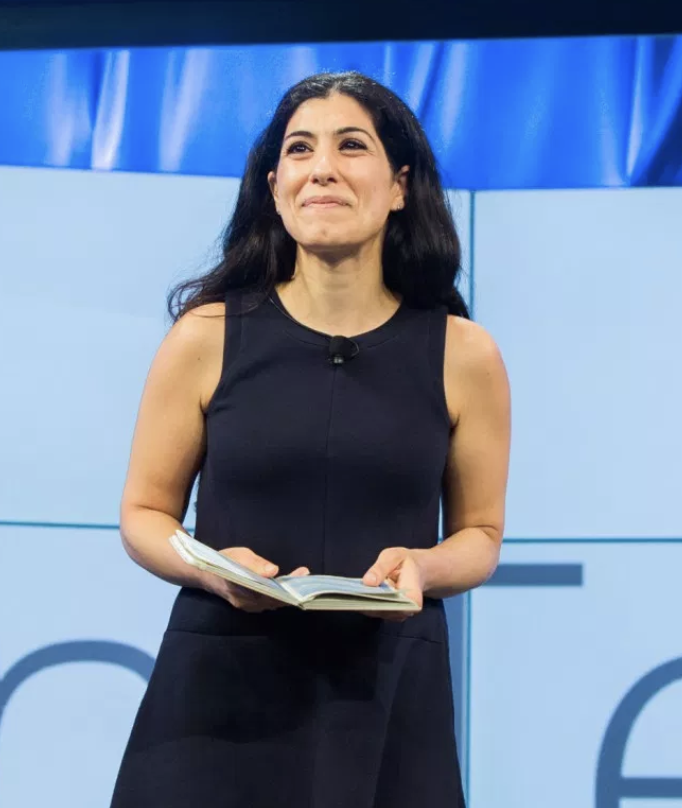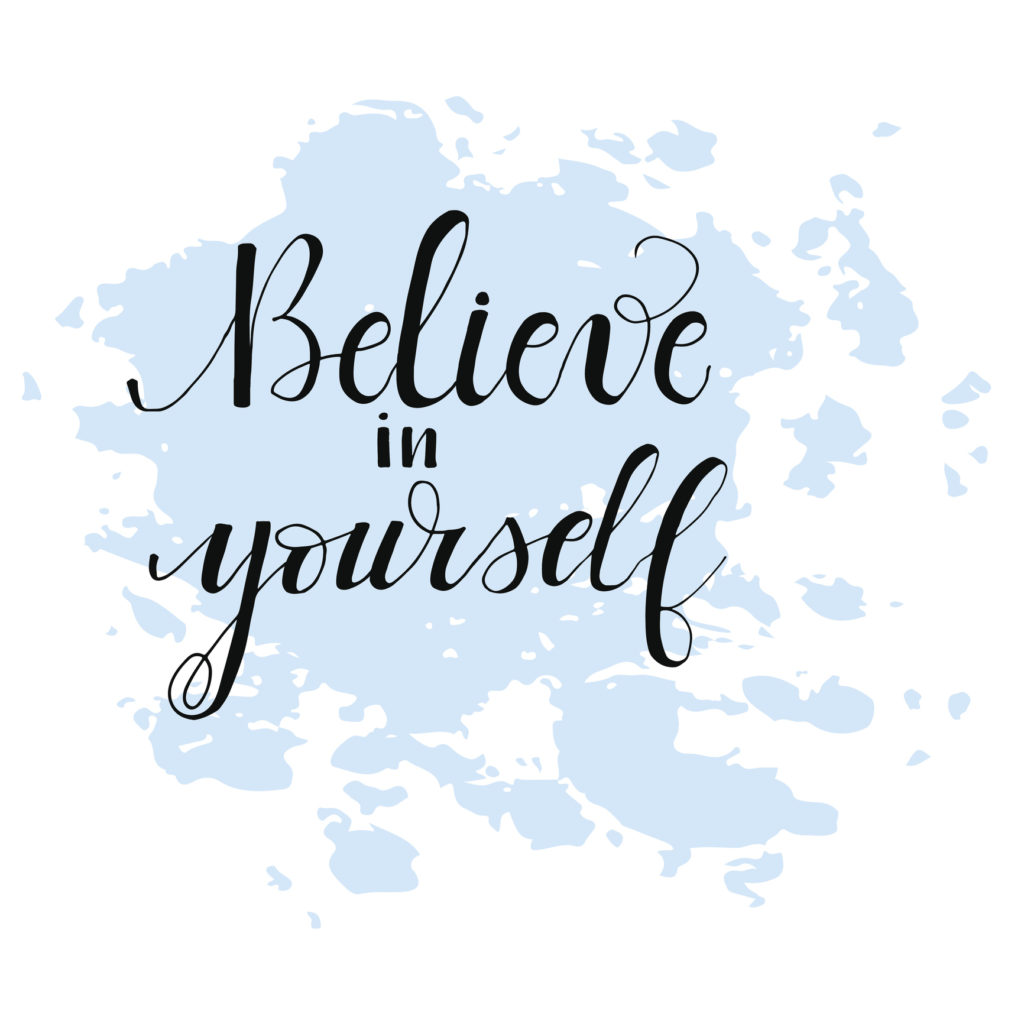Public Speaking Case Study: It’s All About You
Even though Arezoo Riahi knew that taking a public speaking class was the next step in her career, it didn’t make it any easier.
“I was terrified of public speaking,” she says. “It was to the point that it showed. It wasn’t just an internal thing. I shook …. It was just super uncomfortable.”
 At the time, she was working for a U.S.-based international nonprofit and serving as a senior program officer for TechWomen, an initiative of the U.S. Department of State’s Bureau of Educational and Cultural Affairs. The program empowers and connects women from around the world, who are leaders in STEM (science, technology, engineering, and mathematics), with their counterparts in the United States.
At the time, she was working for a U.S.-based international nonprofit and serving as a senior program officer for TechWomen, an initiative of the U.S. Department of State’s Bureau of Educational and Cultural Affairs. The program empowers and connects women from around the world, who are leaders in STEM (science, technology, engineering, and mathematics), with their counterparts in the United States.
She recalls watching as her director addressed large audiences at leading technology companies and thinking, “I can’t do this; I really can’t.”
She knew it was time to seek some training. So, she did. Even today, six years later, she can recall the trepidation she felt on that first morning of the public speaking session run by Chief Executive Throughliner Brad Phillips. “I was nervous to even introduce myself.”
Seeking, and Finding, Transformation
The experience was transformational. When she looks back, she recognizes how profound it was to her professional and personal development. Not long after the training, she became the director of TechWomen and found ample opportunities to use her newfound skills at speaking engagements all over the world, including SXSW and Technovation.
Now the first senior diversity and inclusion strategic partner for software maker Autodesk in San Francisco, she continues to live what she learned during her public speaking classes. While she picked up practical techniques and strategies, she says the most significant discovery came about as she worked with Phillips in honing her approach to public speaking. It required a new way of thinking about herself and her audience:
“My biggest a-ha, and I think about it very regularly, is that I just need to be me.”
She notes that at the time of the public speaking class, she was early in her professional journey. As she sought a path to success, she looked for direction from others who were successful in her field. By acting, looking, and operating like others who were successful – whether at public speaking or at work – she also could manifest the success they had achieved. It was a worthy approach, but she now sees it was more about imitation than inspiration.
“Brad helped me, in a way, get out of my own head a little bit – and to basically think, ‘If you have been invited to say something, people want to hear what you have to say. They want to hear what you, not what somebody else, has to say. And you have to say it in your in your own way.’ I think that was my transformation.”
There were several other aspects of that public speaking class that stuck with her. She recalls a few:
Seeing is believing
Initially, when she realized there would be some videotaped presentation runs, she became anxious. However, by watching the different video clips from beginning to the end, she saw with her own eyes how her inauthentic delivery gave way to an authenticity that afforded her the freedom to be who she was.
“I found my own voice and was comfortable about letting go of the pressures that I had put on myself,” she says.
It’s a thought that echoes what she said right after the training itself. In going over what she learned during the public speaking class, she shared with Phillips that:
“I think seeing myself on camera and recognizing that’s not me was really shocking. I have an engaging personality, then I get in front of the camera … and I just clam up. When you gave me that tip about just being vulnerable to the audience and owning who I am, I was able to do just that.”
Breathing is relieving
She also learned that the physical aspect of presenting is as crucial as your mental game. Before her speeches and presentations, Riahi does deep breathing exercises and visualizes her performance.
“I put myself in that room or in that space and think about talking to the audience.”

Appearances are misconceiving
A public speaking class can benefit speakers with a range of personalities and abilities. It’s not just the wallflowers who need some tips and techniques to blossom as speakers.
For instance, heading into the public speaking class, Riahi knew some people were surprised that she felt discomfort while giving public talks:
“I have a pretty extroverted personality and I am, generally, pretty social and outgoing. I think part of the pressure in my life has always been that people expect that when I get on stage, I’ll show up in that same bubbly, extroverted way. They think only introverts deal with the fear of public speaking, for example.”
By honing her own innate talents and linking them to the commonsense techniques she learned, it gave her a confidence that she not only felt but was projected to her audience.
“That is your power up there … that is the authenticity that allowed me to really bring me up there and be proud of that and be OK with that.”
Seeing is achieving
Riahi is far from the days when a presentation, keynote, or other large address could bring about “crippling paralysis.” If anything, Riahi looks forward to the keynote, panels, and other talks where she can share her story and message.
Still, she knows this is an ongoing journey. Today, what she knows about herself and her ability to convey her messages will continue to evolve. She continues to incorporate what she learned as she learns more about herself. In other words, the training continues to resonate.
“I still get nervous doing it,” she says. “So, I still need a strategy.”
That strategy could include the attire she chooses for the event, the method she selects to deliver her talk, the slides she selects, and other things. Those are elements she adds to an already strong foundation – her own confidence as a speaker.

Beyond the lectern
When asked if the skills she learned in the public speaking class had an impact beyond public speaking itself, Riahi is quick in her response:
“Absolutely. This idea of not being the way somebody else was … (I learned) you can show up in your own way. It’s allowed me to be very courageous in my own work. I am not afraid to challenge the status quo, so to speak. I am just true to myself.”
It is a particularly apt lesson for Riahi, who has spent her career driving diversity and inclusion at the organizations where she has worked. She continues to be a mentor for TechWomen, now inspiring others to become their authentic selves.
She continued:
“Brad’s training offered me … that permission to be yourself. Nobody wants to hear your version of somebody else. They want to hear who you are.”


